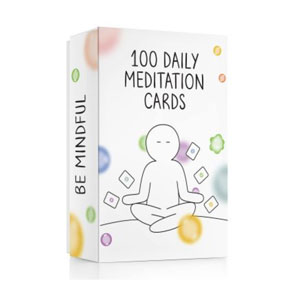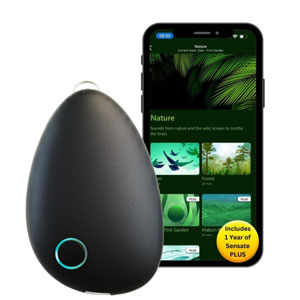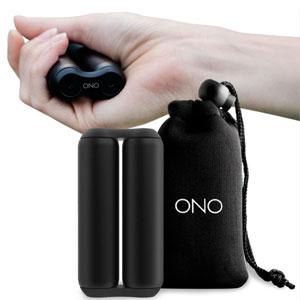Table of Contents
Envision a reality where each encounter leaves you feeling inspired and appreciated. Picture a life filled with deep, authentic connections that nurture your soul and bring out the best in you. This isn’t just a dream – it’s the reality of those who have mastered the art of developing positive relationships.
Meet Patricia, a 32-year-old marketing executive who once struggled with loneliness and superficial friendships. Today, she’s surrounded by a supportive network of colleagues, friends, and family who enrich her life in countless ways. What changed? Sarah discovered the secrets to cultivating meaningful connections, and you can too.
The Science of Connection: Why Positive Relationships Matter
Research consistently shows that positive relationships are crucial for our wellbeing. According to a landmark study published in the American Psychologist journal, strong social connections can lead to a 50% increased chance of longevity. But the benefits don’t stop there:
Health Benefits of Positive Relationships
- Reduced stress levels
- Lower risk of depression
- Improved cardiovascular health
- Enhanced immune function

Emotional and Mental Perks
- Increased self-esteem
- Greater emotional resilience
- Improved cognitive function
- Higher levels of happiness and life satisfaction
With such compelling evidence, it’s clear that investing in positive relationships is one of the most important things we can do for our overall wellbeing. But how exactly do we go about building these life-changing connections?
① The Foundation: Self-Awareness and Self-Love
Before we can forge meaningful relationships with others, we must first develop a positive relationship with ourselves. This involves:
- Practicing self-compassion: Treat yourself with the same kindness you’d offer a good friend.
- Cultivating self-awareness: Understand your own emotions, needs, and patterns of behavior.
- Setting healthy boundaries: Learn to say “no” when necessary and prioritize your own wellbeing.
As you grow in self-love, you’ll naturally attract others who appreciate and respect you for who you are.
② Active Listening: The Key to Understanding
A crucial skill for fostering strong connections is the practice of attentive hearing.
This means:
- Giving your full attention to the speaker
- Avoiding interruptions or premature judgments
- Asking clarifying questions to deepen understanding
- Paraphrasing the speaker’s words to confirm your comprehension.
Through genuine attention, you cultivate an atmosphere where others sense they are respected and recognized.
③ Empathy: Walking in Another’s Shoes
Compassion involves the capacity to perceive and resonate with others’ emotional states. It’s a cornerstone of emotional intelligence and a crucial skill for building positive relationships. To cultivate empathy:
- Practice perspective-taking
- Acknowledge the legitimacy of others’ feelings, regardless of your stance on their behavior.
- Look for common ground in difficult situations

④ Authenticity: The Power of Being Real
In a world of carefully curated social media profiles, authenticity stands out. Being genuine in your interactions fosters trust and deeper connections. This means:
- Sharing your true thoughts and feelings (appropriately)
- Owning up to mistakes or gaps in your knowledge.
- Embracing moments of openness and emotional exposure.
⑤ Gratitude: The Relationship Amplifier
Expressing gratitude is like relationship fertilizer – it helps connections grow stronger and more resilient. Make it a habit to:
- Regularly thank others for their contributions, big and small
- Recognize and appreciate the beneficial influence of others in your journey.
- Keep a gratitude journal to cultivate a thankful mindset
⑥ Navigating Challenges: Conflict Resolution and Growth
Even the most positive relationships face challenges. The goal isn’t to sidestep disagreements, but to address them productively. Here’s how:
- Address issues early, before they escalate
- Use “I” statements to express your feelings without blame
- Focus on finding solutions, not winning arguments
- Be willing to compromise and forgive
Remember, overcoming challenges together can actually strengthen your bond and lead to deeper understanding.
⑦ The Ripple Effect: How Positive Relationships Transform Communities
As you develop more positive relationships in your life, you’ll notice a ripple effect. Your improved communication skills and empathetic approach will influence those around you, creating a more compassionate and connected community.
In fact, a study published in the Proceedings of the National Academy of Sciences found that positive behaviors can spread through social networks, influencing people up to three degrees removed from the original individual. This means that by cultivating positive relationships, you’re not just improving your own life – you’re contributing to a better world for everyone.
⑧ From Theory to Practice: Implementing Relationship-Building Strategies
Now that we’ve explored the principles of developing positive relationships, it’s time to put them into action. Consider these actionable approaches to get you started:
- Schedule regular check-ins with friends and loved ones
- Join clubs or groups aligned with your interests to meet like-minded people
- Practice random acts of kindness in your daily life
- Seek out opportunities for collaboration at work or in your community
- Attend workshops or seminars on communication and emotional intelligence
Remember, building positive relationships is a lifelong journey. Be patient with yourself and others as you grow and learn together.
⑨ The Ongoing Journey of Connection
As we’ve seen, developing positive relationships is both an art and a science. It requires self-awareness, empathy, and consistent effort. But the rewards – improved health, happiness, and a sense of belonging – are immeasurable.
So, take a moment to reflect on your own relationships. Which ones bring you joy and fulfillment? Where might there be room for growth and deeper connection? As you move forward, armed with the insights and strategies we’ve discussed, remember that every interaction is an opportunity to create something beautiful.
In the end, our lives are shaped by the connections we forge. By intentionally developing positive relationships, we’re not just improving our own existence – we’re contributing to a more compassionate and connected world. And isn’t that a legacy worth striving for?

Frequently Asked Questions
What are some signs of a positive relationship?
Signs of a positive relationship include mutual respect, open communication, trust, support for each other’s goals, and the ability to navigate conflicts constructively.
How can I improve my existing relationships?
To improve existing relationships, practice active listening, express gratitude regularly, be authentic, show empathy, and address any issues or conflicts promptly and respectfully.
Is it possible to have too many close relationships?
While having a strong social network is beneficial, it’s important to maintain a balance. Quality often matters more than quantity when it comes to close relationships. Focus on nurturing a core group of meaningful connections.
How do I know when to end a relationship that’s no longer positive?
Consider ending a relationship if it consistently brings more stress than joy, if there’s a lack of mutual respect or trust, or if you’ve made efforts to improve the situation without success. It’s important to prioritize your wellbeing.
Can positive relationships help with mental health issues like depression or anxiety?
Yes, positive relationships can play a significant role in supporting mental health. They can provide emotional support, reduce feelings of isolation, and even motivate individuals to seek professional help when needed.
#PositiveRelationships #EmotionalIntelligence #PersonalGrowth #Wellbeing #HealthyConnections #Empathy #ActiveListening #AuthenticLiving #CommunityBuilding #SelfAwareness












